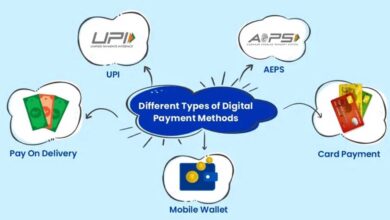 From Guesswork to Strategy
From Guesswork to Strategy
Insurance agencies handle a flood of information every day—from customer profiles to policy data, claims reports, and market trends. But simply having access to information isn’t enough. What separates high-performing agencies from the rest is their ability to turn that data into actionable insights.
Data-driven decision making allows insurance leaders to move away from gut feelings and rely instead on facts, patterns, and predictive models. It’s not just about tracking performance; it’s about anticipating what’s coming next and preparing for it. When data is part of the culture, agencies make smarter choices faster—and with greater confidence.
Understanding Your Clients Better
One of the clearest benefits of using data is the ability to understand your client base more deeply. By analyzing client demographics, purchasing behavior, policy preferences, and claim histories, agencies can develop a more accurate picture of who they serve and what those clients need most.
This insight empowers agents to offer more personalized policy recommendations and better customer service. It also helps with segmentation—dividing customers into groups based on common characteristics—which can drive more effective marketing and outreach campaigns.
Optimizing Internal Operations
Insurance isn’t just about customer service—it’s also about the systems behind the scenes. A data-driven agency uses operational metrics to uncover inefficiencies, reduce waste, and boost productivity.
For example, by tracking time spent on claims processing or analyzing quote-to-bind ratios, agency managers can identify bottlenecks in workflows or underperforming service channels. This allows them to redirect resources where they’ll have the most impact, whether that means investing in technology, adjusting staffing, or refining processes.
Data can also inform hiring decisions, showing where talent gaps exist and which roles are delivering the strongest return on investment.
Enhancing Sales and Marketing Efforts
Gone are the days when agencies could rely solely on broad advertising or cold outreach. Today’s successful insurance marketing strategies are rooted in data—tracking which campaigns drive leads, which channels deliver the best conversion rates, and what messages resonate most with different audiences.
This feedback loop allows agencies to refine their marketing in real time. Instead of guessing, teams can double down on tactics that work and quickly pivot away from those that don’t. It also opens the door for more predictive strategies, such as anticipating when a client might be ready for a policy renewal or upsell.
Improving Risk Management and Compliance
Risk is central to the insurance industry. But it’s not just clients who carry risk—agencies do too. With data, it becomes easier to identify areas of vulnerability, whether that’s in underwriting practices, client portfolios, or regulatory compliance.
Data analysis can surface patterns in claims that point to fraud or inefficiencies. It can also flag gaps in documentation or areas where compliance standards may be slipping. This gives agencies a chance to correct issues before they escalate into legal or financial problems.
Having clear, organized data also simplifies audits and reporting, reducing stress and minimizing the risk of penalties.
Making Strategic Growth Decisions
Whether you’re expanding into a new market or launching a new product line, growth decisions come with uncertainty. But with the right data in hand, agencies can significantly reduce that uncertainty.
By evaluating regional policy trends, competitor performance, and internal sales data, agencies can pinpoint the most promising growth opportunities. They can also assess which segments of their business are most profitable and worth further investment.
This kind of insight helps leadership stay focused, avoid distractions, and execute on long-term plans without constantly second-guessing their direction.
Data also plays a powerful role in helping you manage your insurance agency with more precision. From dashboards that show KPIs in real time to automated alerts that flag unusual activity, the right data tools keep leaders informed and in control.
Building a Culture That Values Data
Technology plays a huge role in data-driven decision making, but it’s the people who bring it to life. For a transformation to take place, everyone in the agency—from agents to analysts—needs to see the value in using data as a decision-making tool.
That means building processes that make data easy to access and interpret, training staff to use new tools, and rewarding behavior that’s aligned with data-based thinking. The most successful agencies are the ones where data isn’t just a dashboard—it’s a habit.
Conclusion: From Insight to Impact
Data-driven decision making is more than a trend—it’s becoming a defining trait of modern insurance agencies. It offers clarity in uncertain moments, structure in a complex industry, and the ability to evolve in a competitive landscape.
The goal isn’t just to collect data, but to use it in a way that supports growth, improves service, and sharpens your edge in the market. With the right systems in place to manage your insurance agency, data stops being noise—and becomes one of your most valuable assets.







